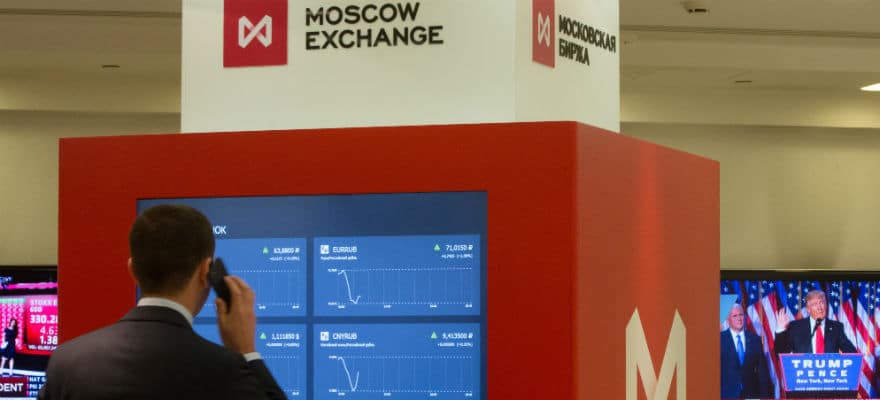Russia's largest Exchange group, the Moscow Exchange, said on Monday that it now has over two million registered retail investors using its services.
The announcement comes after a successful year, at least in the retail space, for the exchange group.
Over the course of 2018, over 700,000 Russians signed up to use the exchange operator's services.
Retail investors cannot sign up to use the exchange's services directly. Instead, they must open an account by going through their bank or a brokerage.
Most Russians have either opened an account with Tinkoff Bank (285,852 accounts) or Sberbank (284,343) but a number of smaller banks, including BCS (61,413), Otkritie (60,040), and VTB Bank (46,066), also contributed a decent share of retail investors to the exchange's client base.
IIAs driving volume for the Moscow Exchange
The move to start trading with Moscow Exchange on the part of so many ordinary Russians likely stems from a change to Russian law made at the start of 2015.
Akin to an Individual Savings Account in the UK, Russian lawmakers created Individual Investment Accounts (IIAs) to get people in the world's largest country to trade more.
There are two types of IIA. One of them grants you a large tax rebate, and the other allows you to invest without paying capital gains tax.
At the time that IIAs were introduced, foreign exchange brokerages, such as Alpari, had been around for over a decade. But for those interested in investing via their bank, in bonds or Equities , it wasn't as easy to open and authenticate a trading account.
That has also changed, with banks allowing customers to open and authenticate their investment accounts online, and contributed to the rise in the number of retail investors using the Moscow Exchange's services.
Retail investors in Russia now contribute a significant proportion of the Moscow Exchange's trading volumes. In its statement, the company said that they were behind 35 percent of equities trading volumes in 2018, as well as 7 percent of bonds and 43 percent of derivatives.


















